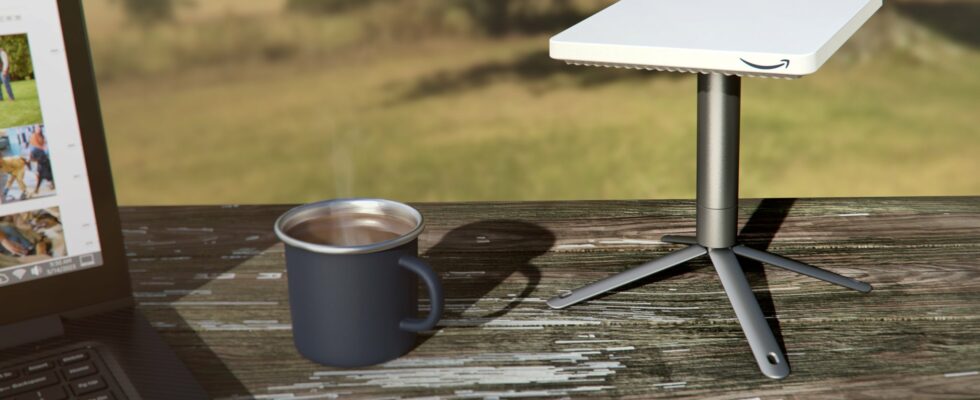The giants created by Jeff Bezos and Elon Musk are not used to moving forward hand in hand… But necessity rules. Rockets ordered by Amazon have not yet started their career, while Kuiper must be deployed within a given period. The company has purchased 3 launches… For now.
It was one of the most dramatic announcements of early 2022, Amazon’s order for 83 rocket launches to deploy the 3,236 satellites in its Kuiper connectivity constellation. The latter were distributed between three launchers (and three companies), the European Arianespace and the Americans ULA (United Launch Alliance) and Blue Origin. With in perspective for the three manufacturers, almost the “contract of the decade”!
Despite everything, 18 months later, there is a significant problem… While Amazon has successfully tested its first two prototypes in low orbit (takeoff in September), none of the three families of launchers ordered are available. However, legally, Amazon must have deployed at least half of the Kuiper satellites by 2026!
New launchers late
This is an obligation for Kuiper which relates to the allocation of commercial licenses for the frequencies of its satellites: in 2026 the company must have at least 1,620 satellites in orbit. Which should not have initially posed a problem with the contracts concluded, but which is becoming more and more complex. Indeed, we know that Ariane 6 will not make its maiden flight before June 2024 (at best, there will be a single operational flight at the end of the year, but which will not a priori be dedicated to Kuiper).
For its part, Blue Origin will try to put its large New Glenn launcher into service next year, but the latter has not undergone its final ground tests either, and it is a priori NASA which will be the client for the first takeoff. Finally United Launch Alliance has awarded 8 Atlas V launches to Kuiper, and these will be used to form the backbone of the network, but Atlas is limited and the new Vulcan launcher will not fly in Kuiper’s service until at least the 2nd semester 2024.
3 Falcon 9 flights: validate your basket?
Amazon therefore risks finding itself with a very limited number of satellites in orbit even though it will have to show its future customers that its service is progressively operational. There was only one solution left, even if the commercial department had to swallow snakes: order Falcon 9 shots from SpaceX, the direct competitor.
Everything is not settled yet
Amazon has therefore signed for 3 launches, which will take place in mid-2025, the date chosen, because it undoubtedly corresponds to the peak production expected for the first generation of Kuiper satellites. This will undoubtedly be enough to fill a possible air gap, in the event that one of the three new launchers ordered is delayed (after all, despite the scale of the three giants, failure is never out of the question), knowing that it’s not that unusual for SpaceX to send other connectivity constellations. The company had already taken charge in 2022-2023 of sending the last OneWeb satellites into orbit, and the latter did not complain about it.
A funny situation, however, is that the large shareholders of Amazon who took legal action against the company’s administration for having ousted SpaceX from the initial call for tenders (according to them, Falcon 9 still represented the most effective solution). most reliable and least expensive) have not given up and are waiting for management to justify itself.
We bet that in the offices of SpaceX headquarters in Hawthorne, some are watching all this with popcorn and big smiles.
Source : Space News

2